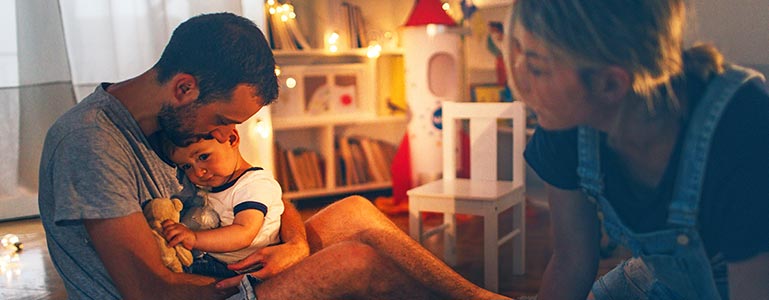Mr. Rogers’ phrase “Look for the helpers” has been especially resonant lately, as we have watched youth mobilizing around the country, in the wake of school shootings, to advocate for safe schools and changes in governmental protections. From horror, tragedy, fear, and frustration comes hope, determination, action, and connection. As a Baby Boomer who spent my teens and twenties trying to fight injustice in our country and at the hands of our country, I am reminded of the importance of moving from feeling helpless to being empowered.
What is happening in our country now provides wonderful opportunities for parents to talk with their children, no matter what the child’s developmental stage and age, about creating a better world. While we may be successful in protecting young children from awareness of violent or disturbing news events, it can often challenging for parents or other adults to pretend like nothing has occurred. Children have an uncanny ability to perceive the feelings of their parents, even when those feelings are not expressed verbally.
If young children seem to be aware of a disturbance in normal life, it could be an opportunity to talk about painful topics in a way they can grasp:
“Daddy is feeling sad because some people got hurt, but I’m glad that lots of people are helping them.”
“Some people are coming up with ideas for new rules to make sure that everyone is safe.”
This would be interesting and very satisfying to a preschooler or early elementary child who is unaware of the details. They may ask further questions, but most likely would be ready to move on and play.
For elementary age children who do learn specifics about events that are frightening and threaten their sense of well-being, the opportunity arises to give them information that matches their curiosity. Find out what they know, encourage questions, and answer honestly.
This leads to the most important part of the conversation:
“How are we going to change things so that this doesn’t happen again?”
This approach helps children understand that there are many factors that create these situations and there is not a simple solution. Helping them accept the complexity of our society builds thoughtfulness and resilience. Reminding children that they know what’s right for themselves and that they have a voice and can be agents of change diminishes their anxieties and empowers them in their daily lives. Modeling the things you do—voting, signing petitions, marching, calling legislators, or simply listening to others as they offer opinions—teaches your children skills for making a difference.
As parents we want to protect our children from pain, fear, and evil. But since we cannot, we do something much more powerful: remind and encourage them of their strength, wisdom, and power.
Thank you to all the teens and young adults in our country who are helping remind us adults every day that we can make the world a safer and more compassionate place where all of us can thrive.
If you need some support to talk to your child about a difficult topic, please contact us at the Center for Children and Youth. Our professional staff can help!



